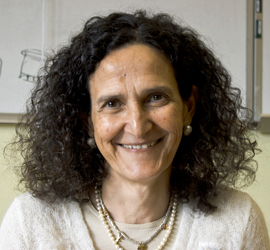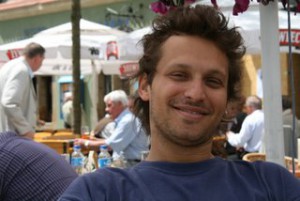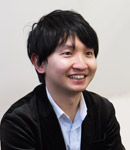Dec 2, 2015 Comments Off on Organizers
Dec 2, 2015 Comments Off on Participants
Participants
Marco Autili, Italy
Javier CámaraMoreno, USA
Betty Cheng, USA
Alan Colman, Australia
Nicolás D’Ippolito, Argentina
Gregor Engels, Germany
Antonio Filieri, Germany
David Garlan, USA
Holger Giese, Germany
Zhenjiang Hu, Japan
Shihong Huang, USA
Paola Inverardi, Italy
Pooyan Jamshidi, UK
Jeff Kramer, UK
Filip Krikava, Czech Republic
Martina Maggio, Sweden
Hausi Müller, Canada
Shin Nakajima, Japan
Alessandro Papadopoulos, Sweden
Patrizio Pelliccione, Sweden
Nir Piterman, UK
Romina Spalazzese, Sweden
Gabriel Tamura, Colombia
Kenji Tei, Japan
Sebastián Uchitel, Argentina
Toshimitsu Ushio, Japan
Norha Villegas, Columbia
Thomas Vogel, Germany
Giovanni Quattrocchi, Italy
Liliana Pasquale, Ireland
Sasinee Pruekprasert, Japan
Dec 2, 2015 Comments Off on Schedule
Schedule
Arrival day–24th, April
- 19:00-21:00 : Welcome Reception
Day 1st–Mon., 25th, April
- 7:30-8:30 : Breakfast
- 8:30-9:00 : Opening
- 9:00-10:20 : Session 1 (4 speakers)
- Betty Cheng – A Search-Based Approach to Exploring Uncertainty for Self-Adaptive Systems
- Gregor Engels – Model-Integrating Development of Software Systems: A Flexible Component-Based Approach
- Paola Inverardi – Analysis for self-adaptation
- Gabriel Tamura, Norha Villegas, and Hausi Muller– Lessons to Learn from Control Theory in Self-Adaptive Software Systems
- 10:20-10:50 : Break
- 10:50-11:50 : Session 2 (3 speakers)
- Shihong Huang – Incorporate Human Mental State in Self-Adaptive Systems
- David Garlan – Human-in-the-Loop Control Synthesis and Other Challenges for Controlled Adaptation
- Jeff Kramer – Architectures for Adaptation
- 12:00-14:00 : Lunch
- 14:00-15:20 : Session 3 (4 speakers)
- Zhenjiang Hu – Self-adaptation and bidirectional programming: towards a happy marriage
- Romina Spalazzese – Towards Supporting the Internet of Things through Model-Driven Engineering
- Shin Nakajima – Lessons Learned from a Self-adaptive Web Application
- Thomas Vogel and Holger Giese – Toward Self-Adaptive Software Employing Model Predictive Control
- 15:20-15:50 : Break
- 15:50-16:50 : Session 4 (3 speakers)
- Alan Colman – The illusion of control
- Javier Cámara Moreno – Managing Trade-Offs in Offline Synthesis of Adaptation Behavior
- Nicolás D’Ippolito – tbd
- 18:00-19:30 : Dinner
Day 2nd–Tue., 26th, April
- 6:00-7:30 : Hike to Ogusu-yama
- 7:30-8:45 : Breakfast
- 9:00-10:20 : Session 5 (4 speakers)
- Antonio Filieri – Lightweight Adaptive Filters for Learning Software Behaviors @Runtime
- Marco Autili – Automatic Synthesis of Adaptable and Evolving Choreographies
- Alessandro Papadopoulos – Control of Self-Adaptive Software in Presence of Uncertainty
- Sebastián Uchitel – Dynamic Controller Update
- 10:20-10:50 : Break
- 10:50-11:50 : Session 6 (3 speakers)
- Sasinee Pruekprasert – Quantitative Supervisory Control Game for Discrete Event Systems
- Nir Piterman – Considering Time in Discrete Control
- Martina Maggio – Automated Software Control: closing the loop around software systems with formal guarantees and limited prior knowledge
- 12:00-14:00 : Lunch
- 14:00-15:20 : Session 7 (4 speakers)
- Filip Krikava – Towards the use of runtime models for infrastructure management and self-adaptation
- Patrizio Pelliccione – Leveraging Collective run-time Adaptation for UAV-based systems
- Liliana Pasquale – Topology Aware Adaptive Security of Cyber-Physical Systems
- Kenji Tei – Qualitative Analysis for Adaptation Strategies
- 15:20-15:50 : Break
- 15:50-16:50 : Session 8 (3 speakers)
- Pooyan Jamshidi – Fuzzy Self-Learning Controllers for Elasticity Management in Dynamic Cloud Architectures
- Giovanni Quattrocchi – Advanced self-adaptation of cloud applications with containerization and control theory
- Toshimitsu Ushio – Nonblocking Supervisory Control of Mealy Automata with Nondeterministic Output Functions
- 18:00-19:30 : Dinner
- 19:45-21:00 : Ping-pong
Day 3rd–Wed., 27th, April
- 7:30-8:45 : Breakfast
- 9:00-9:30 : Topic selection and team building
- 9:30-11:30 : Break out session
- 11:30-13:00 : Lunch
- 13:30-19:00 : Excursion : Kamakura tour
- 19:00-21:30 : Banquet in Kamakura
Day 4th–Thu., 28th, April
- 7:30-8:45 : Breakfast
- 9:00-10:00 : Presentation preparation
- 10:00-11:30 : Presentation and discussion
- 11:30-11:45 : Closing
- 11:45-12:30 : Lunch
- 13:00- : Departure
Dec 2, 2015 Comments Off on Overview
Overview
Welcome to CASaS 2016
Date : 24-28, April, 2016
Self-adaptive systems are required to adapt its behaviour in the face of changes in their environment and goals. Such a requirement is achieved by developing self-adaptive systems as closed-loop systems following a Monitor Analyse Plan Act (MAPE) scheme. MAPE loops are a mechanism that allows systems to monitor their state and produce changes aiming to guarantee that the goals are met. In order to achieve the desired goals, self-adaptive systems must combine a number of MAPE loops with several responsibilities and abstraction levels.
Higher-level goals require decision-level mechanisms to produce a plan in terms of the actions to be performed. Several mechanisms can be adopted for automatically generating decision-level plans (e.g. event-based controller synthesis) providing guarantees on the satisfaction of hard goals, and improvements on soft goals.
Lower-level goals, on the other hand, require control mechanisms that sense the state of the environment and react to it thousands of times per second. Standard solutions to this problem are based on classical control theory techniques such as discrete-time control.
Indeed, system’s requirements cannot be achieved by isolated MAPE loops, on the contrary, a combination of coordinated low-level and decision-level MAPE loops must be considered. Hence, multiple layers of control combining low latency discrete-time controllers with decision-level event-based controllers are a sensible approach to guarantee satisfaction of sophisticated goals in self-adaptive systems.
However, self-adaptive systems community has neglected the use of control theory as a central tool to guarantee hard goals while aiming to better satisfy soft goals. Very recently, software engineering community has started to study the application of control theory and the formal guarantees it provides in the context of software engineering. Proof of this is the Dagstuhl seminar “Control Theory meets Software Engineering” that has been held in 2014. The seminar covered diverse possible applications of control theory in software engineering. The Shonan meeting we propose, on the other hand, focuses more on formal guarantees that can be provided in self-adaptive system via the use of the broad area of control theory (e.g. event-based controller synthesis, discrete-time control).
In this meeting, we plan to involve a group of very active researchers in key areas such as Self-Adaptive Systems, Control theory, Game theory, Software Engineering, and Requirements Engineering, setting an adequate environment to discuss current and future applications and possibilities of control theory as a mechanism to provide formal guarantees on self-adaptive systems (e.g. convergence, safety, stability). We expect that having a number of participants from a wide variety of research areas will bring to light the benefits of incorporating the application capabilities and formal framework provided by control theory to self-adaptive systems.
We envisage the meeting to be organised in two main parts. First, a “stating common grounds” part where participants will give a talk stating their perspectives on their fields and key aspects where they visualise relations between their research area and other participants’ fields. Then, a second part “discussions and work” where the most relevant topics selected by the participants will be discussed in work groups. Finally we plan to summarise the workshop findings and propose future actions.
We expect the meeting to encourage participants from different areas and communities to interact and actively search for common interests that may result in possible collaborations and joint work.


